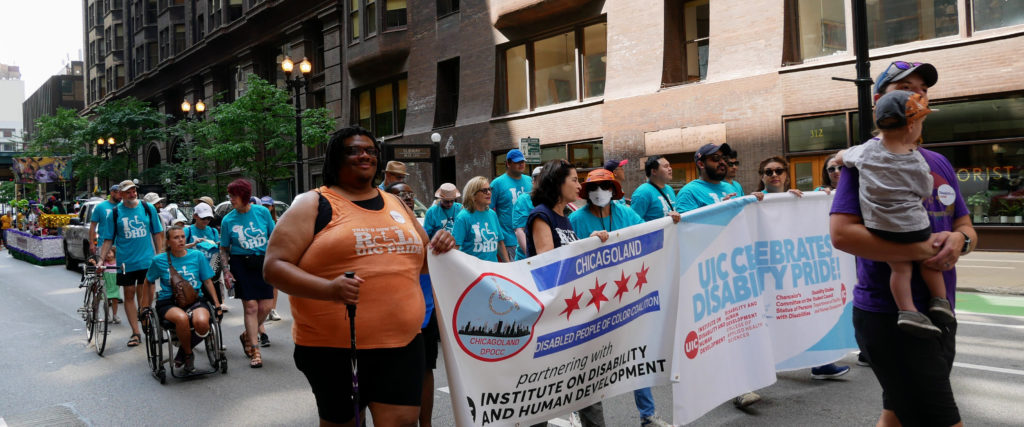New master’s degree offers interdisciplinary, practical education in disability access and inclusion
Text

A new master’s degree program in disability access and inclusion is accepting applications through January 15 for its first cohort of students, set to begin classes in fall 2025.
Formerly known as the MS in disability and human development, the revamped program fills a gap in disability education, providing instruction beyond compliance with bureaucratic bare minimums. It also refocuses existing coursework for students pursuing a professional track, rather than PhDs or research careers.
The program offers a “comprehensive, applied and practical approach” to disability access and inclusion, said Robert Gould, co-director of the new program with Sarah Parker Harris.
Quote
There’s a lot of one-off trainings out there that will give you the requirements, but we encourage more critical thinking in practice and look at the nuances in working professionals’ experiences.
Text
The hybrid program requires 32 credit hours, which can be completed in person or online in three to four semesters. During their first semester, students choose between two concentrations: disability accessibility or assistive technology. A critical component in both concentrations is fieldwork. Students will gain hands-on experience within the vibrant disability community at UIC and around the city. Collaborating organizations include the Great Lakes ADA Center, Bodies of Work, the Disability Culture Center, the Assistive Technology Unit and the Developmental Disabilities Family Clinic.
The revised coursework has a uniquely interdisciplinary approach. Comparable master’s programs at universities around the country are geared toward specific industries, offering vocational rehabilitation degrees to special education teachers or social workers, for example. Students in UIC’s program, however, are prepared for careers across a spectrum of disability access work: as ADA coordinators at the organizational or city level, as experts in disability resource centers or as facilitators within cultural or educational institutions.
The program’s assistive technology concentration is one of three degree programs in the U.S. that offer accreditation through the Rehabilitation Engineering and Assistive Technology Society of North America. But the degree, with either concentration, is designed to transcend legal requirements and compliance training. Students will be prepared to coordinate services and apply adaptive technologies, but they can also study disability culture and representation, civil rights or organizational change.
The coursework addresses “the spirit of the law,” said Parker Harris
Quote
There is an increased demand to move beyond compliance and to actually embrace inclusion in ways that are applied and practical. Learning how to ‘do inclusion’ — from documents to people and everything in between — is critically important across multiple industries.